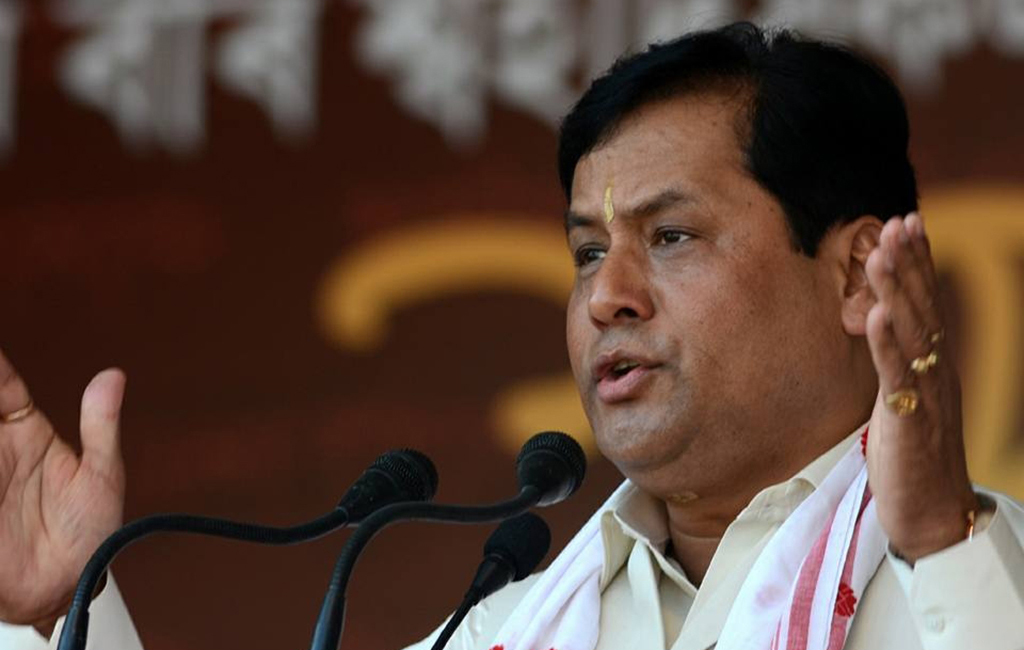
Assam BJP starts flashing communal card as Assembly polls near
The Assam unit of the BJP has been raking up contentious communal issues in the run up to the Assembly elections due in about six months. It all started when Assam Chief Minister Sarbananda Sonowal claimed on Friday (October 9) that the indigenous communities in the state were not “safe and secure” as the “Mughal aggression” was still continuing.

Tigers housed at the Assam State Zoo-cum-Botanical Garden in Guwahati almost went hungry on Monday (October 12) when a BJP leader and his small group of supporters blocked vehicles carrying beef for the big cats, demanding a blanket ban on cow slaughter.
Although the group was removed by the police, and the tigers got their daily meal, the protest, led by Satya Ranjan Bora, the former general secretary of the Assam unit of the BJP’s Kishan Morcha, was part of a larger script being followed by the BJP leaders — that of raking up contentious communal issues in the run up to the Assembly elections due in about six months.
Related News: Assam BJP leader wants to stop beef supply for zoo’s tigers
It all started when Assam Chief Minister Sarbananda Sonowal claimed on Friday (October 9) that the indigenous communities in the state were not “safe and secure” as the “Mughal aggression” was still continuing. He was alluding to the Maulana Badruddin Ajmal-led All India United Democratic Front (AIUDF), which is likely to ally with the Congress for the elections.
Finance minister Himanta Biswa Sarma then took the cue from the chief minister. On Tuesday (October 13), addressing a meeting in the Bodoland area, he said the BJP should be voted to power to prevent the aggression of “Aurangzebs and Babars”.
In another meeting on Sunday (October 11), he launched a direct tirade against Ajmal, a member of Parliament. Sarma claimed Assamese women and girls were falling prey to the “love jihad” propagated by “those following “Ajmal’s culture and civilisation”. There has been no official statistic, however, to suggest any spike in inter-faith marriages in Assam as he claimed. Sarma said if his party is voted back to power in 2021, it would deal with “love jihad” more strictly.
In another communally sensitive move, the Assam government has decided to close down all the state-run madrassas.
Related News: New alliances take shape as Assam approaches polls
Opposition parties and political observers say the BJP is being compelled to raise the communal pitch as it has not been able to keep its promise that brought it to power in 2016. The party had said that it would implement the Assam Accord by updating the National Register of Citizens (NRC) to detect and deport illegal Bangladeshi migrants, who had allegedly swarmed the state and taken away jobs from the locals.
The historic accord signed in 1985 put an end to the six-year-long anti-foreigner agitation in the state and promised to detect and deport all those who had migrated to the state from across the border after March 25, 1971, the eve of Bangladesh’s independence declaration.
“Instead of implementing the accord, the BJP diluted it by enacting the Citizenship Amendment Act, scrapping the NRC prepared in the state,” said Guwahati-based political commentator Sushanta Talukdar.
The state government had constituted a 13-member committee for implementing clause six of the the Assam Accord that relates to safeguarding “Assamese” identity and heritage, but it did not make public the panel’s report, Talukdar pointed out.
The dilution of the Assam Accord was one of the reasons that alienated the influential All Assam Students Union (AASU) from the BJP, the party the student body had backed in 2016.
Related News: Who is an Assamese? Panel report raises more questions than answers
The AASU and other like-minded organisations recently floated a political party, Asom Jatiya Parishad, 35 years after the student organisation had given birth to the Asom Gana Parishad (AGP), which is now an ally of the BJP in the state.
Another regional political party, Rajor Dal (people’s party), was formed by the Krishak Mukti Sangram Samiti (KMSS), an organisation of the peasants, jointly with over 50 other like-minded outfits, giving rise to concerns within the BJP.
The BJP hopes that its Hindutva card will triumph over the Assamese sub-national aspirations represented by the two nascent regional parties.
“The formation of these two parties goes to show that a large section of the people who had reposed their faith in the BJP in the last elections is now disillusioned. To prevent a bigger exodus, which looks inevitable, the BJP is trying to polarise people on religious lines,” said Congress spokesperson Apurba Kumar Bhattacharjee.
“As it has nothing else to offer, the BJP is now desperately trying to polarise Hindu votes and, in the process, it’s only exposing its failure,” Bhattacharjee said.
“The BJP had polarised the 2016 elections dubbing it as the last battle of Saraighat. Now, after four-and-a-half years of ruling the state, it is again trying to raise the same old bogey. What does this mean?”
The Battle of Saraighat was fought in 1671, in which the Ahom Army had defeated the Mughal Army. Interestingly, though the BJP and others from the Hindu right have tried to depict the naval battle as a conflict between the Hindus and Muslims, it was not so in reality. A close aide of the Ahom general Lachit Borphukan was Bagh Hazarika, a Muslim whose real name was Ismail Siddique. The Mughal army was led by Aurangzeb’s commander Ram Singh, a Hindu.
If the Mughals are still invading Assam, then who is to be blamed for it, asked former BJP leader and anti-CAA activist Mira Borthakur. “If the Mughal aggression has not ended, what are your elected authorities doing? What has stopped your authorities from thwarting the aggression?” she asked, slamming the government on social media.


